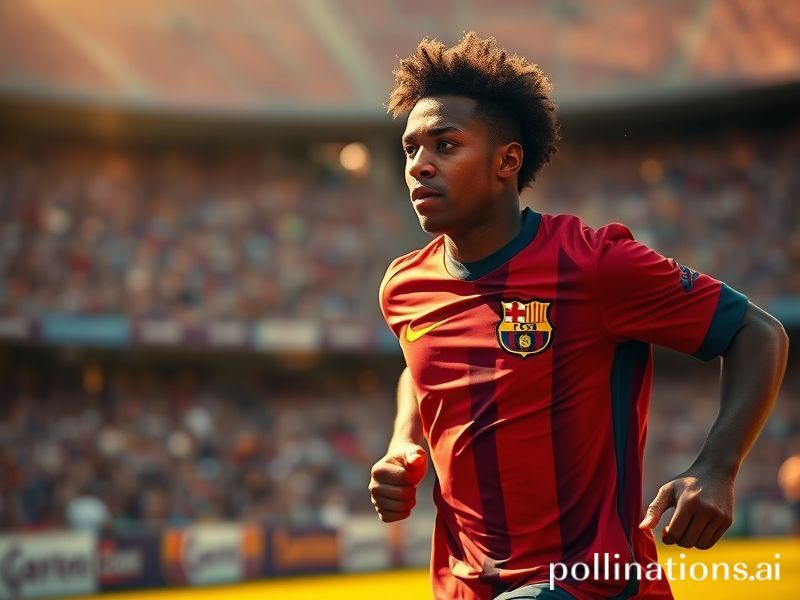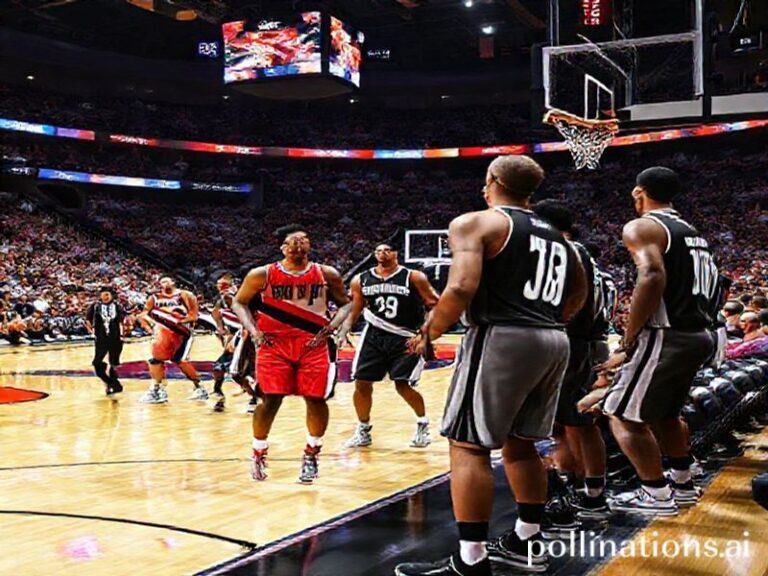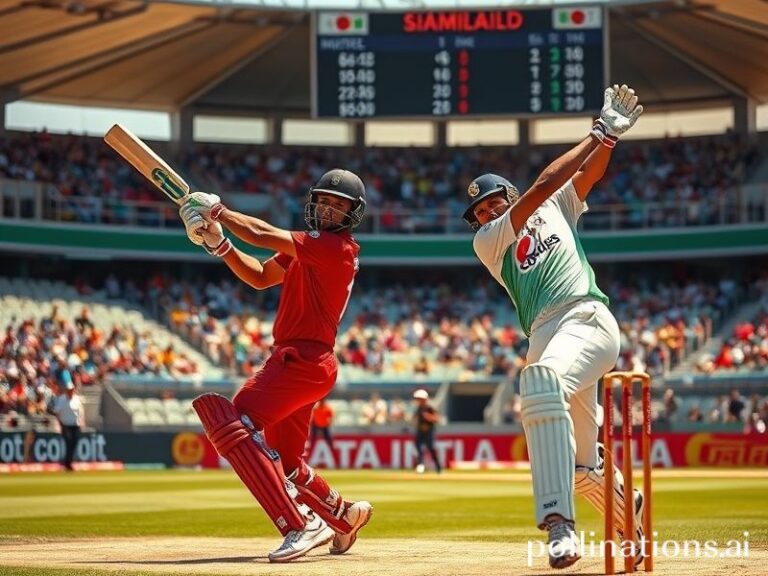Ansu Fati at 21: The Global Metaphor Who May Already Be Past His Sell-By Date
Ansu Fati Is 21 Going on 31 and the Whole World Is Watching Him Age in Fast-Forward
By Our Man in the Departure Lounge, sipping a €17 airport cortado
Barcelona—When Ansu Fati was 17, he looked 12 and played like a 27-year-old who had already read the spoiler ending of every defender’s autobiography. Four knee surgeries, a loan to Brighton, and one cursed No. 10 shirt later, he now looks 31 and plays like a man who has seen the spoiler ending of his own. The global press still calls him “teen sensation,” a label that clings like a bad tattoo, even as the poor kid’s birth certificate quietly files for retirement.
The international significance? Fati is the living metaphor for every accelerated promise of the 21st century: instant stardom, instant money, instant collapse. While hedge-fund algorithms decide his next transfer fee before he has finished tying his laces, entire nations project their hopes onto his ligaments. In Bissau, where he was born, kids sell bootleg Fati shirts next to stalls hawking expired antibiotics. In Spain, the far right praises him as “one of the good immigrants” while simultaneously voting to deport anyone darker than a cortado con leche. In Ghana, where his father once played, local commentators wonder what might have been if the family had chosen Accra over Catalonia—probably fewer surgeons, more jollof.
Meanwhile, in the glass offices of La Liga’s broadcast partners, executives stroke their chins and spreadsheets, praying the kid rediscovers form before the expiration date on his personal brand. The league’s North American rights are up for renewal; nothing sells soccer to Floridian retirees quite like a smiling kid who once nutmegged Sergio Ramos. If Fati scores, the stock photo agencies win; if he limps off, the meme economy wins. Capitalism, unlike cartilage, never tears.
The geopolitical subplot is equally farcical. Last month, Brighton’s manager—an amiable Geordie who still thinks paella is a type of risotto—admitted he plays Fati mostly “to keep Barcelona’s accountants happy.” Translation: the English seaside is now Barcelona’s unofficial rehab ward, a mutually beneficial cold-war arrangement in which the Spanish giant retains hope and the English club retains receipts. Everyone wins except the patient, who is publicly encouraged to “express himself” while privately instructed not to sprint more than 30 meters without a notarized consent form.
Back in Catalonia, presidential candidates promise to “bring Fati home,” as if he were a runaway Labrador and not an employee with recurring knee effusion. The club’s socios debate whether his £6 million salary is a bargain or a sin, conveniently forgetting that the same amount covers roughly four weeks of the stadium’s Spotify naming rights—because nothing says “Mes que un club” like a streaming-service jingle echoing off empty seats.
The human angle, for those who still remember humans, is darker comedy. Fati’s father, once a taxi driver in Guinea-Bissau, now gives interviews in which he thanks God, the King of Spain, and an orthopedic surgeon from Finland who specializes in hamstring grafts. The surgeon, incidentally, just launched a start-up that promises to 3-D-print new knees by 2026, provided you purchase the premium subscription. Early investors include the Qatari royal family, who also sponsor PSG, who also tried to buy Fati last summer. It’s a small world after all; the gift shop just happens to be located in your own synovial fluid.
And so the planet watches a 21-year-old age in dog years, each grimace on the touchline remixed in slo-mo for TikTok users in Jakarta. The Chinese Super League once offered him €30 million per Instagram post—terms that even Kim Kardashian found “a bit much.” He turned it down, or his agents did, or maybe the deal was never real; in the attention economy, the difference is semantic.
Conclusion: Somewhere between the bootleg shirts of Bissau and the balance sheets of Silicon Valley, Ansu Fati remains a walking Rorschach test for a world that wants its miracles pre-packaged and its tragedies monetized. If he scores tomorrow, the stock ticker blinks green; if he doesn’t, the ticker blinks anyway. Either way, the cortados stay €17, the planet keeps spinning, and the poor kid’s knee keeps ticking like a borrowed watch. Time, unlike talent, is never on loan.







